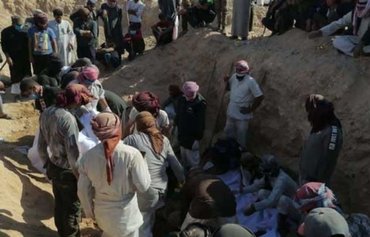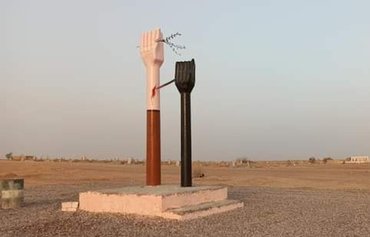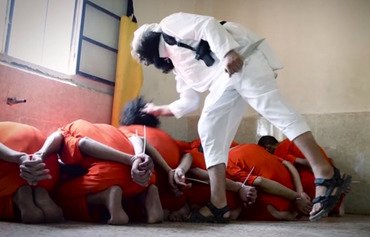Faced with a shortfall of cash-flow and accommodation, "Islamic State of Iraq and the Levant" (ISIL) elements have been seizing private homes in Deir Ezzor and imposing fines in addition to punishments on local residents, activists tell Diyaruna.
The group's patrols have stepped up their efforts to identify unoccupied homes in order to house ISIL fighters fleeing Iraq with their families, they said, seizing homes that belong to residents who fled the group’s oppression.
Meanwhile, ISIL has tightened its surveillance of city residents, with Hesba ("religious police") patrols imposing fines in addition to flogging or imprisonment, activists and eyewitnesses said.
"The Deir Ezzor region controlled by ISIL is under an actual siege," said Jamil al-Abed, an activist with Deir Ezzor Under Fire media campaign, which monitors the abuse residents have suffered at the hands of the group.
"ISIL is confiscating many homes and turning them into posts for its elements or using them to house elements and their families coming from Iraq," he told Diyaruna.
ISIL patrols scour the city
The group’s Hesba patrols are detaining men and women at random, al-Abed said, and imposing fines of up to 300,000 Syrian pounds ($1,400) for various alleged infractions.
Women are commonly charged with violating the group's strict dress code, or with leaving their homes without a mahram (male guardian), in which case the woman, in addition to her husband or father, are punished, he said.
Punishments levied on men vary according to the charges, which typically include blasphemy, violation of the dress code (jeans are a particular target), listening to music or being clean-shaven and sporting an "inappropriate" haircut.
Farmers are currently prohibited from accessing their fields, al-Abed added, which has driven up the price of vegetables, fruit, legumes, wheat and flour.
Additionally, he said, ISIL has imposed a 6% levy on cargo entering the region, "which is collected in cash or through the seizure of a portion of the cargo".
"ISIL’s patrols scour all the neighbourhoods and rural areas of Deir Ezzor for houses abandoned by their owners, which they immediately confiscate," said Moataz al-Akidi, a native of rural Deir Ezzor.
They turn these houses over to ISIL elements fleeing Iraq, he told Diyaruna.
"The number of homes confiscated in various areas of Deir Ezzor, especially the western and eastern rural areas, has reached 500," he said.
To prevent his own home in rural Deir Ezzor from being seized, al-Akidi said, he returned from the city and is now commuting daily to his job from a distance.
Tribal areas under threat
Deir Ezzor residents and activists report that ISIL has been forcefully asserting its control in the city, conducting raids and random detentions around the clock, said Syrian journalist Mohammed al-Abdullah, who currently resides in Cairo.
These actions are concentrated in areas under its control as well as in tribal areas, particularly those of the Shaitat tribe, he told Diyaruna.
This stems from ISIL's fears there will be an uprising against it in the Shaitat tribal area, he said, as the Shaitat fought a fierce battle against the group , which executed hundreds of its tribesmen.
"The poor living conditions are not suffered only by the citizens living under ISIL’s rule, but also the citizens living in parts of the city that are not controlled by ISIL and besieged by the regime," he said.
Meanwhile, al-Abdullah said, ISIL's revenue sources in the region "are constantly dwindling as a result of the airstrikes that targeted the areas containing oil wells in the recent period, especially Khasham and the Conoco gas plant".
"This was a key area for the sale of crude oil to merchants, who resell it to citizens and black market traders," he said, adding that the eradication of this source of revenue "explains why the group has imposed fines for the violations that are pinned on citizens and taxes on goods brought into the region".

![A family displaced from Deir Ezzor by the 'Islamic State of Iraq and the Levant' seeks safety in an area outside the group's control. [Photo courtesy of Mohammed al-Abdullah]](/cnmi_di/images/2016/12/19/6819-Syria-Deir-Ezzor-600_384.jpg)






